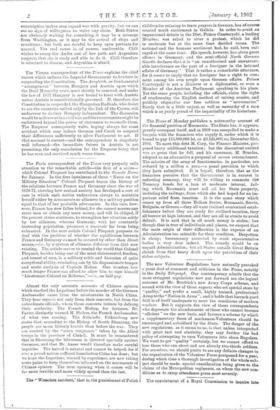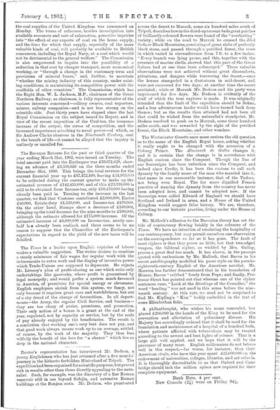The appointment of a Royal Commission to inquire into the
coal supplies of the United Kingdom was announced on Monday. The terms of reference, besides investigation into available resources and rate of exhaustion, prescribe inquiries into "the effect of our exports of coal on the home supply, and the tints for which that supply, especially of the more valuable kinds of coal, will probably be available to British consumers, including the Royal Navy, at a cost which would not be detrimental to the general welfare." The Commission is also empowered to inquire into the possibility of a reduction in that cost by cheaper transport, more economical working, or "through a change in the customary term and provisions of • mineral leases," and, further, to ascertain " whether the mining industry of this country, under exist- ing conditions, is maintaining its competitive power with the coalfields of other countries." The Commission, which has the Right Hon. W. L. Jackson, M.P., chairman of the Great Northern Railway, as chairman, is fully representative of the various interests concerned—colliery owners, coal exporters, miners, railway companies—and is not less strong on the scientific side. - Just thirty years have elapsed since the last Royal Commission on the subject issued its Report, and in view of the recent imposition of the Coal-tax, the immense increase of the output, the stress of competition, and the increased importance attaching to naval power—of which, as Sir Andrew Clarke observes in the Nineteenth Century, coal is the breath of life—it cannot be alleged that the inquiry is untimely or uncalled for.







































 Previous page
Previous page